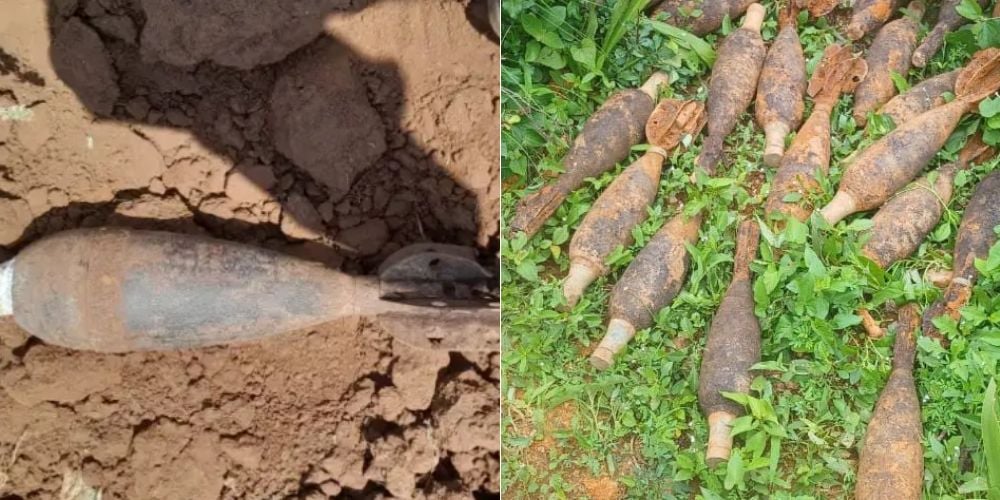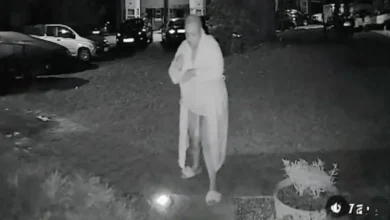Police Deployed to Kikuyu After Farmer Unearths Colonial-Era Bomb in His Farm

Police officers have been deployed to Nduma village in Kikuyu, Kiambu County, after a farmer discovered a live mortar bomb while ploughing his land, sending shockwaves across the area.
Residents were thrown into panic when the farmer stumbled upon the 80 mm artillery shell, locally known as an “80 mic mic,” believed to date back to the colonial period. The discovery quickly drew the attention of local authorities and bomb experts.
Kikuyu Sub-County Police Commander Joseph Ndege confirmed the incident, saying officers from the Bomb Disposal Unit were dispatched to the scene to neutralize the explosive.
Speaking to journalists on Friday, October 24, Ndege said the affected section of the farm had been sealed off to give the bomb squad room to safely assess the situation.
He further revealed that experts decided not to detonate the device at the site, citing safety concerns and potential damage to surrounding properties.
“The bomb is highly dangerous, and its blast radius extends beyond 50 meters,” Ndege explained. “It has been resolved that the explosive will be detonated in a safer location, possibly in Kanyoyo, but the final decision rests with the specialists.”
The explosive device is a smoothbore, muzzle-loaded mortar capable of firing fin-stabilized bombs. Mortars of this kind are designed for high-angle indirect fire at short to medium ranges.
Experts believe the bomb belongs to the British 3-inch/81 mm family, such as the Stokes or Ordnance ML 3-inch mortars, which were first introduced during World War I. These weapons were widely used across the British Empire, including in colonial military operations.
During the British campaign in Kenya, especially around the time of the Mau Mau uprising, British forces relied on mortars, field artillery, and air power to suppress resistance. Many such weapons were later abandoned or buried, some remaining live decades after the colonial period ended.
Bomb experts warn that these old explosives can stay active for years and pose serious danger if disturbed. They advise anyone who encounters suspicious metallic objects or shells to avoid touching them and immediately contact authorities.
Commander Ndege echoed this caution, urging Kenyans to remain vigilant. “If you come across any strange object that resembles a weapon or explosive, do not attempt to move it. Inform the nearest police station right away,” he said.
The discovery in Kikuyu has reignited concerns over unexploded wartime ordnance still buried in parts of Kenya, especially former colonial military zones. Authorities continue to emphasize public awareness to prevent accidents related to such dangerous remnants of history.





